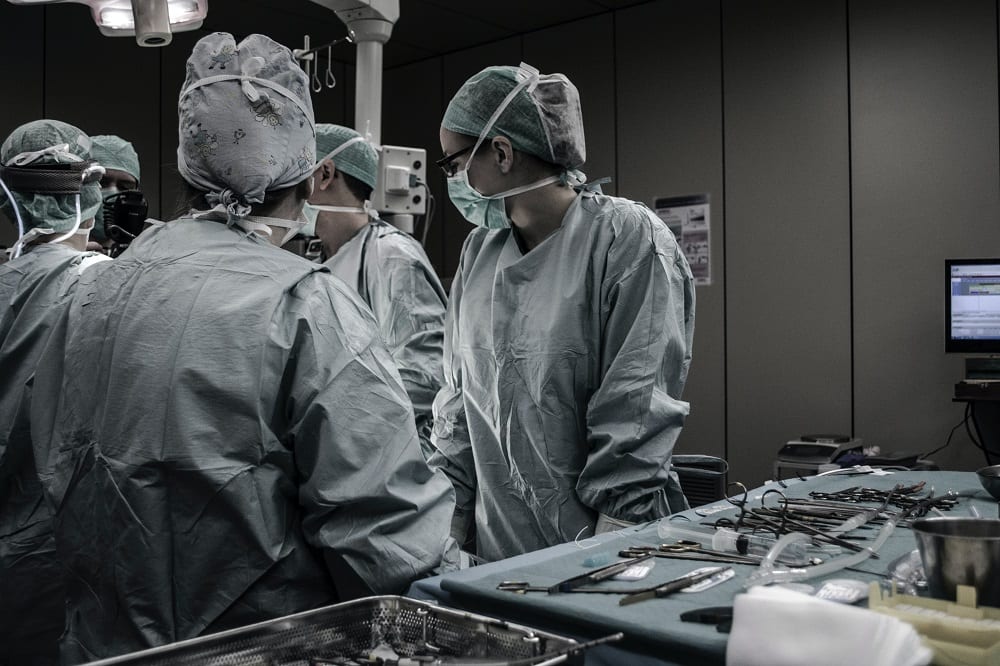After doing years of education and training, many medical students are wondering about their future. Choosing a location to do a medical residency is a big decision, and many students are often left wondering where they will be able to go for their residency.
Residents Medical Group is helping medical graduates find the medical residencies or fellowship they desire without having to leave the United States. They work closely with the top U.S. medical schools and teaching hospitals to find the perfect fit for each graduate.
What Is a Medical Resident Doctor?
A medical resident doctor is an individual who graduated from medical school and is now considered a doctor in training who typically joins a program for graduate medical education (GME).
The resident doctor will be considered an intern the first year, and then medical residencies recognize them as residents. They can work at doctor’s offices, health clinics, or hospitals to continue their medical training and education.
Many times, resident doctors will choose a medical residency placement that is specific to a specialized field of medicine. This is quite common for any resident doctor who knows exactly what type of medicine they want to practice.
Residents Medical Group is a good fit for someone seeking a medical residency. The length of that residency will be determined by the field of medicine they engaged in and can be anywhere from three to seven years.
What Can a Resident Doctor Do?
Resident doctors can perform many of the same duties as regular doctors. While doing their medical residencies, they are supervised by other senior residents or doctors to make sure that everything is being followed by protocol.
All resident doctors have finished their medical school training and received a diploma with a degree in the field of medicine they choose to study. During their schooling, they have completed clinical training, including working with patients to some degree.
Medical residencies doctors often do the following:
- Perform Examinations and Medical Procedures
- Diagnosing Health Conditions
- Order Diagnostic Tests
- Managing the Care of Patients, Including Patient Medical Histories
- Treating Health Conditions
However, the junior residents will begin with the less complicated tasks until they gain more experience and education related to the medical field. They can work their way up to receiving more responsibilities as suggested by supervising doctors once they have met set requirements.
Resident doctors usually work alongside other doctors to gain experience and learn procedures. This can often involve doing rounds in hospitals, which allows them to gain knowledge from the treatments and progress of each patient.
Who Should See a Resident Doctor?
Anybody can see a resident doctor when seeking medical attention. For example, if an individual goes to the hospital for a diagnosis or treatment, the chances are that a resident doctor will help them during their visit.
Medical residents are assigned to doctors and will spend more time with the patients getting to know them and figuring out what is causing their discomfort or pain. In many cases, the doctor on call will ask the resident to do the initial examination and get as many details as possible.
Then the doctor will enter the room while the resident doctor remains present. The doctor will perform whatever procedures or tasks that are necessary, and the resident doctor will observe and take notes. This is how resident doctors gain real-life experience and training.
It has been proven that resident doctors spend more time with patients than the actual doctors do, mainly because time is of the essence, and the doctors have many patients to see. In addition, resident doctors can learn from patients about different ailments and conditions that aren’t always covered in a textbook.
Since resident doctors are freshly graduated medical students, they often have more modern knowledge of medical conditions and treatments that are new to the field of medicine. This can be very helpful when a diagnosis is not clearly observed.
Having a resident doctor in the room with an individual during exams or tests can be both beneficial and comforting. All resident doctors will have a common interest in getting to the bottom of any medical emergency, which helps patients remain calmer.
How Do Resident Doctors Choose Medical Residencies?
Choosing a medical residency is not an easy task, and for many medical graduates, it involves extensive research and hours of trying to find the perfect match. Even then, there are no guarantees what location or type of residency will be offered.
However, Resident Medical Group has made it their top priority to get graduates placed in the medical residencies that they always dreamed of working and learning in. As a result, they are the only organization that offers the education and integration needed for any specific residency.
They are U.S. Medical Residency and Fellowship placement experts who work diligently to get every resident doctor into the residency program they desire. They offer a legitimate path to each and every graduate that often results in accomplishing a long-term goal.
Medical student graduates have a lot on their plates when trying to find the right medical residency. Therefore, it’s essential that they know all the options possible before committing to something that may not have been their top choice!
Every graduate seeking a medical residency needs to be prepared. Residents Medical Group has the tools and training necessary to help each person successfully land the residency of their dreams.


